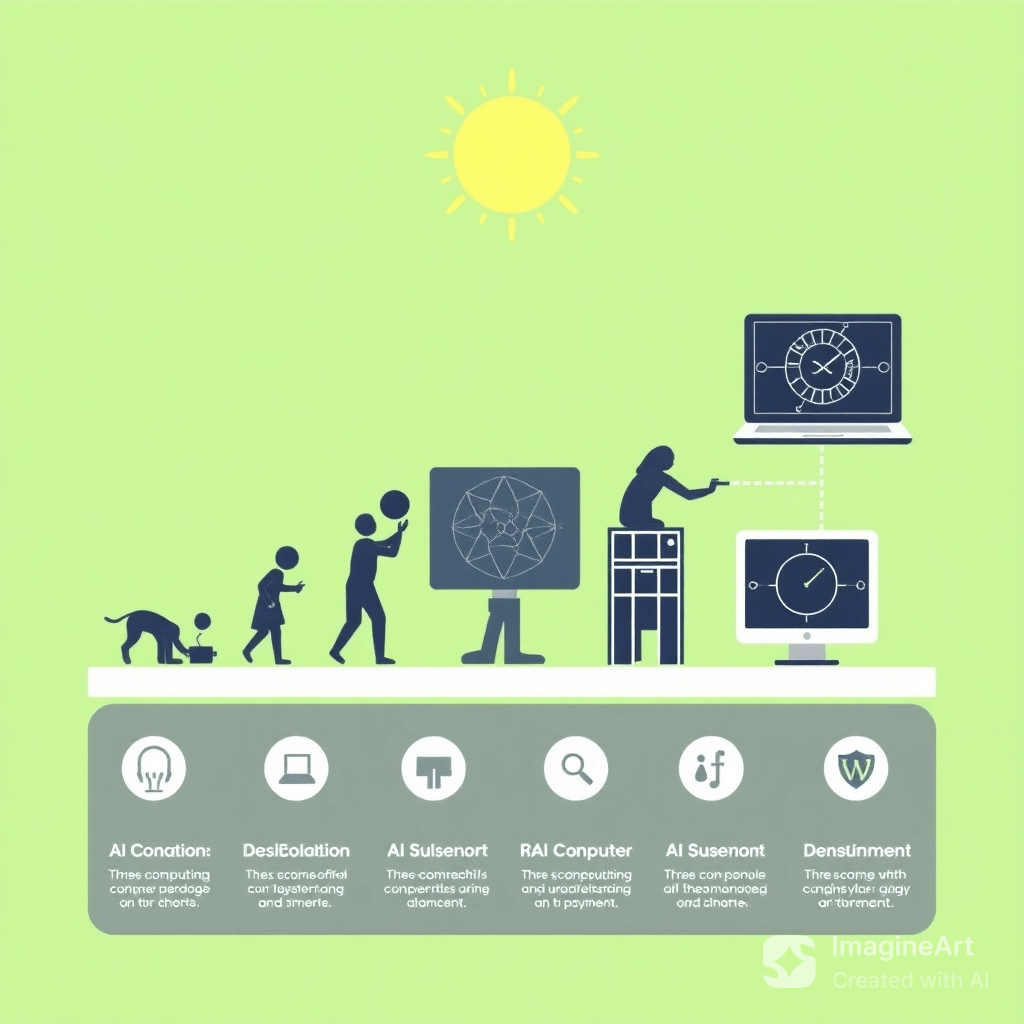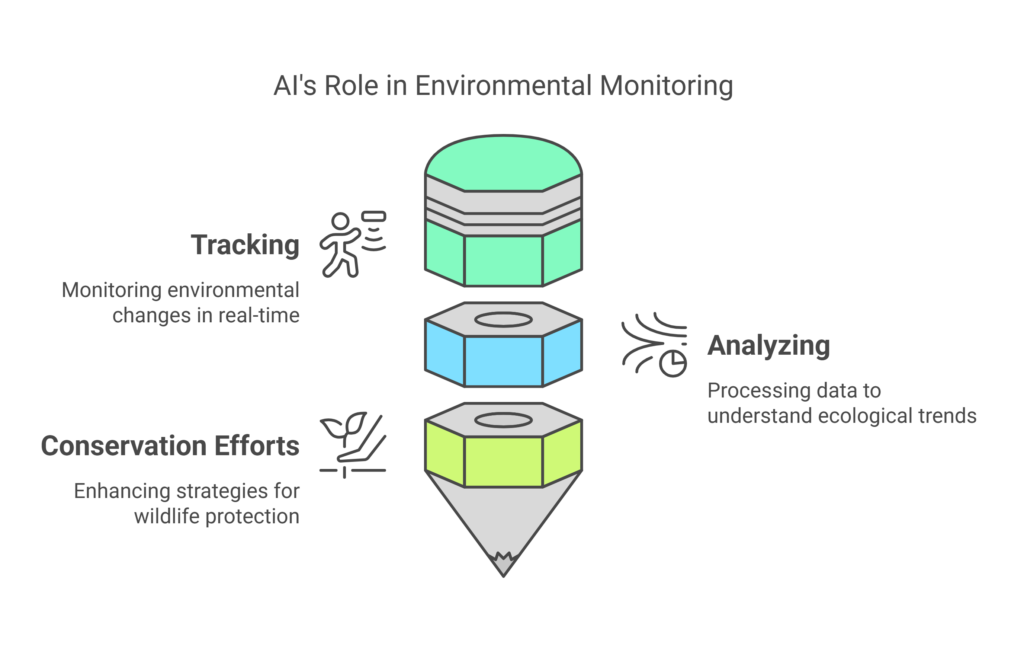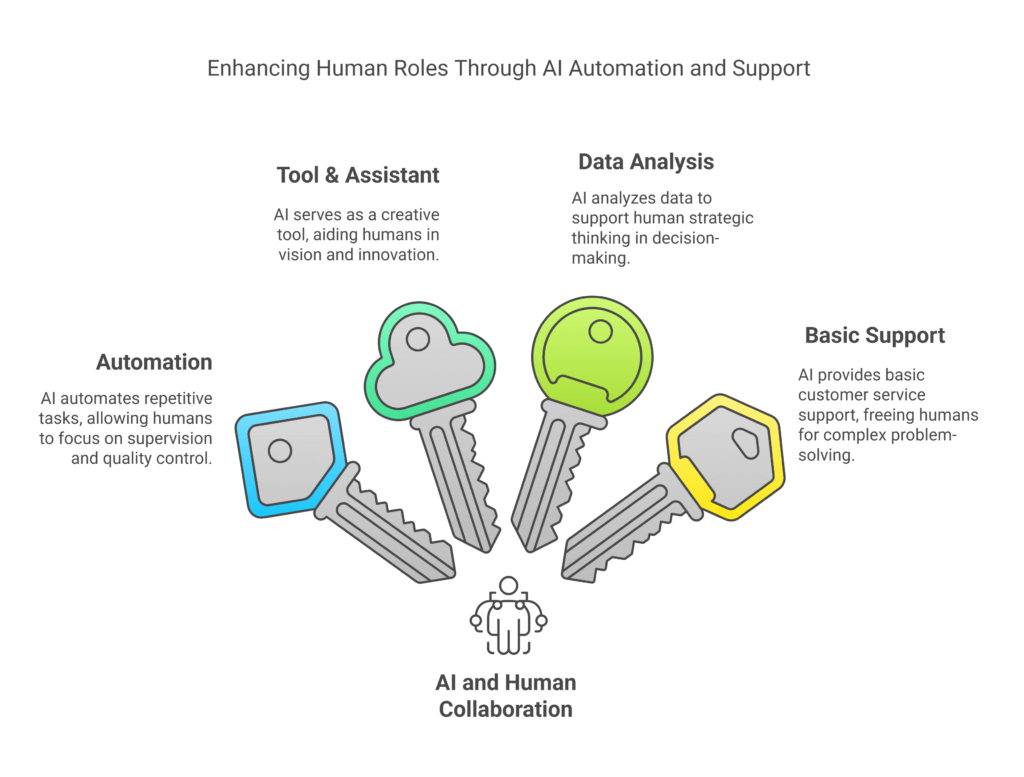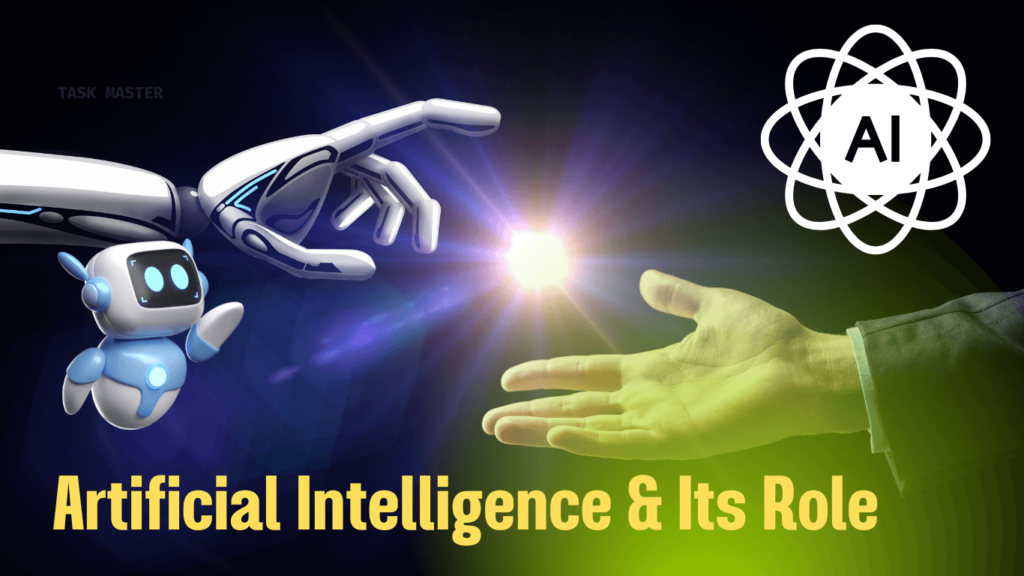Just Imagine, You wake up, and your smart home has already adjusted the temperature to your liking, your coffee maker has brewed your favorite blend, and your digital assistant has organized your day’s schedule. Welcome to the world of Artificial Intelligence (AI) – not just a buzzword, but a revolution that’s already part of your daily life!
What Actually is Artificial Intelligence?
Let me break it down in simple terms. Think of Artificial Intelligence (AI) as teaching computers to think and learn, kind of like how we humans do it – just way faster and with more data than any of us could handle. I like to compare it to teaching a child: first, you show them the basics, then they start recognizing patterns, and eventually, they can make decisions on their own.

Artificial Intelligence (AI) isn’t just one thing – it’s more like a family of technologies. Here’s the rundown:
1. Narrow AI (ANI)
This is the AI we interact with daily. It’s like that friend who’s amazing at one specific thing but doesn’t do much else. Think Siri or your Netflix recommendations – super helpful in their lane!
2. General AI (AGI)
This is the sci-fi stuff – AI that can think like humans across any task. We’re not there yet, but it’s like teaching a computer to be a jack of all trades.
3. Super AI (ASI)
The theoretical big boss of AI – smarter than humans in every way. It’s fascinating to think about, but we’re still far from this reality.
Real-World AI: It’s Already All Around Us
You might be surprised to learn how much AI is already enhancing our lives. Here are some cool examples:
Healthcare
I recently read about an AI system that can detect breast cancer in mammograms better than some human radiologists. That’s not about replacing doctors – it’s about giving them super-powered tools to help save lives.
Education
Remember struggling with that one subject in school? Artificial Intelligence (AI) is making personalized learning a reality, adapting to each student’s pace and style. It’s like having a patient tutor available 24/7.
Environmental Protection

Here’s something fascinating: AI is helping us fight climate change by:
A. Optimizing energy use in buildings
B. Predicting weather patterns for better disaster preparedness
C. Monitoring wildlife populations to prevent extinction
The Job Question: Partner, Not Replacement
Let’s address the elephant in the room – is AI coming for our jobs? Here’s my take: Artificial Intelligence (AI) isn’t about replacing humans; it’s about empowering us to do more meaningful work. Think of it this way:
The Road Ahead: AI’s Future Promise

The future of AI is incredibly exciting, but it needs to be shaped with care and purpose. Here’s what I believe we can look forward to:
Healthcare Revolution
Imagine AI helping to discover new medicines in weeks instead of years, or predicting health issues before they become serious problems.
Environmental Solutions
AI could be our secret weapon in fighting climate change, optimizing renewable energy, and protecting endangered species.
Education for All
Picture a world where quality education is accessible to everyone, anywhere, tailored to each person’s unique learning style.
Making AI Work for Everyone
For AI to truly be a boon for society, we need to approach it thoughtfully. Here’s what I think matters most:
1. Ethical Development
We need to ensure AI systems are developed with strong ethical guidelines and respect for privacy.
2. Inclusive Benefits
The advantages of AI should reach everyone, not just tech-savvy urban populations.
3. Human-Centered Design
AI should enhance human capabilities, not replace human judgment and creativity.
Conclusion
AI isn’t just about fancy technology – it’s about creating tools that make our lives better, our work more meaningful, and our future brighter. As we move forward, the key is to embrace AI’s potential while ensuring it serves humanity’s best interests.
What excites me most about AI isn’t the technology itself, but how we can use it to solve some of our biggest challenges. From climate change to healthcare access, AI could help us create a more equitable and sustainable world.

Ready to be part of this exciting journey? Start by learning more about AI applications in your field and staying informed about Artificial Intelligence (AI) developments. The future is not about AI versus humans – it’s about AI and humans, working together for a better world.
FAQ
- What is Artificial Intelligence (AI)?
AI refers to the development of computer systems that can perform tasks typically requiring human intelligence, such as learning, reasoning, and problem-solving. - What are the different types of AI?
AI can be categorized into three main types:- Narrow AI (Weak AI): Designed for specific tasks.
- General AI (Strong AI): Possesses human-like intelligence.
- Artificial Superintelligence (ASI): Surpasses human intelligence.
- How does AI learn?
AI learns through data-driven processes, primarily using machine learning techniques where models are trained on data to make predictions or decisions14. - What are some real-world applications of AI?
Applications include virtual assistants (like Siri), recommendation systems (Netflix), self-driving cars, medical diagnosis, and fraud detection in finance12. - Is AI replacing human jobs?
While AI automates certain tasks, it also creates new roles in AI development and oversight, leading to shifts in job responsibilities rather than outright replacement. - How does AI impact privacy and ethics?
Concerns include data privacy, algorithmic bias, and the ethical use of AI. Ongoing efforts aim to develop regulations and guidelines to address these issues. - Can AI make creative content?
Yes, AI can generate creative works such as art, music, and literature, often collaborating with human creators. - What is the future of AI?
The future looks promising with advancements expected in healthcare, autonomous systems, and education, although achieving Artificial General Intelligence (AGI) remains a long-term goal. - How can I learn about AI?
Learning resources include online courses from platforms like Coursera and edX, as well as specialized programs in universities and organizations focused on AI. - Is AI safe?
Ensuring AI safety is a priority for researchers who are developing methods to guarantee that AI systems operate safely and ethically with human oversight

